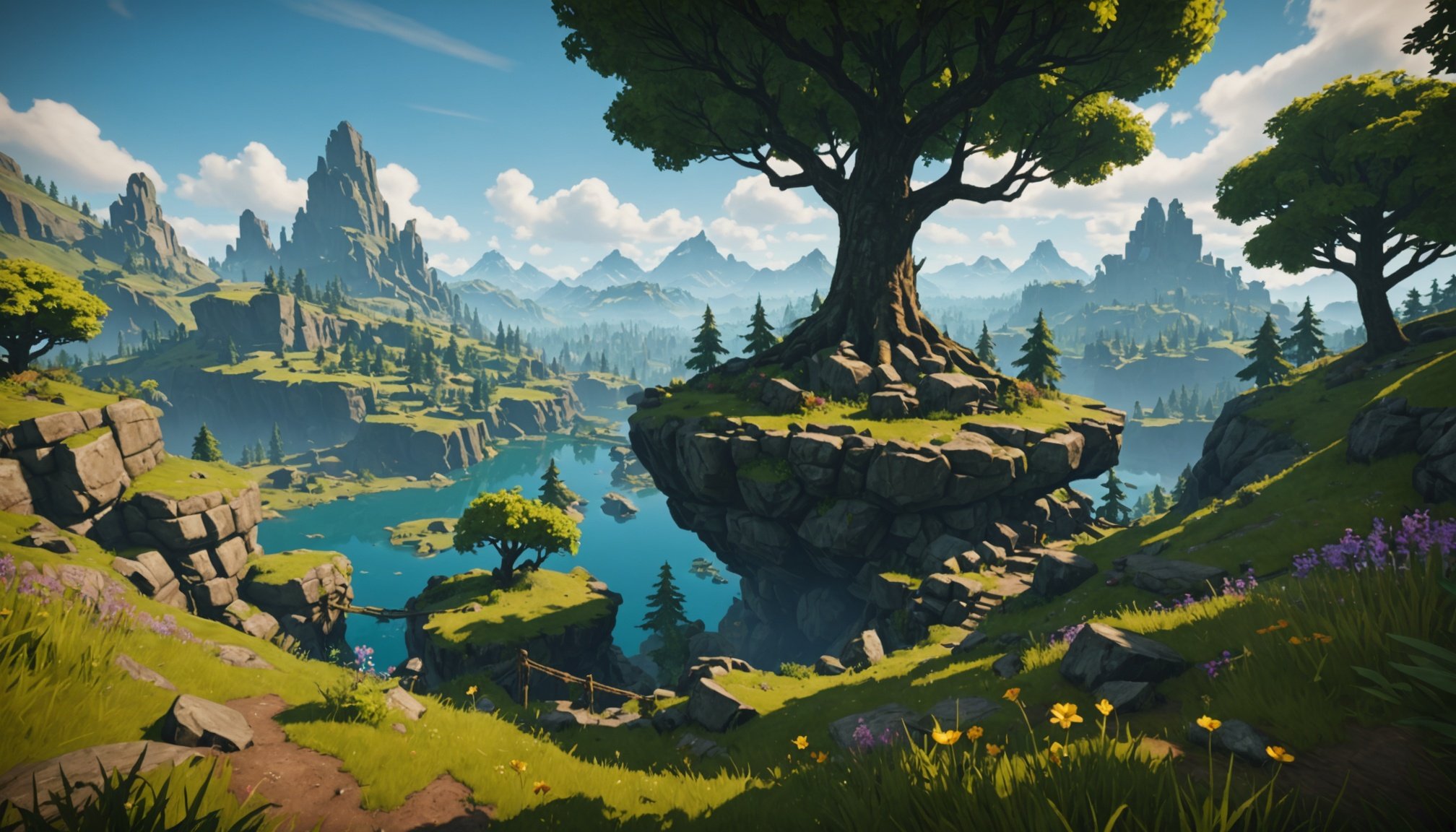Understanding Procedural Generation
Procedural generation is an essential game design technique that brings life and variety to virtual realms. It involves using algorithms to create content dynamically, ensuring each player encounter is unique. This innovation is particularly relevant in games where exploration and replayability are key, such as survival games.
In survival games, procedural generation enables the creation of vast, unpredictable landscapes and intricate game mechanics. Players are constantly challenged as the environment adapts, presenting new obstacles or resources each time they engage. Randomness plays a significant role, as it ensures that no two playthroughs are the same, maintaining a fresh experience for seasoned players.
Also to discover : Elevate your forest adventure: essential techniques for creating lifelike foliage in exploration games
Historically, procedural generation traces back to the early days of gaming with titles like “Rogue,” where algorithmic design was used to generate labyrinthine levels. Over the years, technological advancements have enhanced these algorithms, allowing for more complex and visually appealing worlds.
While randomness is a vital aspect, it’s the balance of unpredictability and fair gameplay that defines successful procedural generation. Algorithms are carefully crafted to maintain this balance, ensuring that game landscapes are both challenging and enjoyable, ultimately improving the player’s gaming experience. This intricate blend of design and technology highlights the depth and creativity found in modern gaming.
Have you seen this : Mastering multiplayer dynamics: navigating key hurdles in developing next-gen vr experiences
Impact on Survival Game Design
In the realm of survival game design, procedural generation plays a transformative role. This approach, which generates game environments algorithmically rather than manually, significantly impacts gameplay mechanics and challenges. By offering diverse scenarios, it ensures players face unpredictable elements, where resource management and adaptability become crucial skills. Compared to traditional level design, which may become predictable after repeated play, procedural methods keep the game fresh and engaging for the player.
Dynamic environments also enhance player immersion and experience. For instance, a forest that evolves or changes its hazards each time a player returns not only heightens the difficulty but also enriches the narrative depth, allowing the world to feel more alive and responsive. This engagement fosters a deeper connection between the player and the game world, increasing emotional investment in survival outcomes.
By incorporating these complex environments, game developers ensure that every experience is unique, offering both replayability and constant engagement. Procedural generation reshapes what it means to master a game, making the journey rather than the outcome the central focus of the gaming experience.
Case Studies of Popular Survival Games
Delving into the realm of popular survival games, unique elements such as procedural generation can deeply enhance the player’s experience. Here’s an analysis of how some notable titles integrate these elements.
No Man’s Sky
At the heart of No Man’s Sky is the exploration of limitless planets and unique ecosystems. Players encounter vast, procedurally generated worlds, which offers virtually infinite diversity. Initially met with mixed reception, evolving procedural elements have since rejuvenated community engagement. Developer insights reveal a dedication to refining the game, focusing on continuous evolution and improvement, keeping players invested.
Minecraft
Minecraft stands out for its procedural generation of worlds, which significantly boosts player creativity. Such innovation in world-building allows gamers to endlessly explore and create. Moreover, community-driven mods and adaptations enrich gameplay further. The game’s longevity is impressive, sustained by this dynamic engagement and its ever-evolving environment, providing countless hours of exploration.
Rust
Rust presents randomly generated maps that crucially influence player strategies. The balance between survival mechanics and procedural landscapes keeps the experience fresh and challenging. Players often share stories shaped by the environment, highlighting how integral these elements are in shaping unique experiences and communities. These aspects ensure that Rust remains both engaging and competitive in its genre.
Future Trends in Procedural Generation
As the future of gaming evolves, procedural generation is set to benefit from the rapid advancements in emerging technologies like AI and machine learning. These technologies hold the capacity to significantly enhance this process, allowing for more complex and authentic environments. Through AI algorithms, games can leverage intricate designs previously difficult to achieve manually, resulting in more immersive and personalized experiences.
In upcoming survival games, we predict procedural generation will play a pivotal role. With machine learning driving these innovations, games will likely feature environments that continuously adapt and respond to player actions. This means no two experiences will be identical, cultivating a unique sense of discovery each playthrough. Developers will aim to integrate sophisticated procedural elements that keep players engaged with unpredictable gameplay.
Moreover, the potential for increased player customization is substantial. Players might soon have direct influence over the procedural aspects, tailoring landscapes to their preferences. This degree of interaction with dynamic environments allows for more gameplay innovations, engaging players on a deeper level. These trends point towards a future where players actively contribute to the creation of their digital worlds, cementing procedural generation’s place in shaping interactive storytelling.











